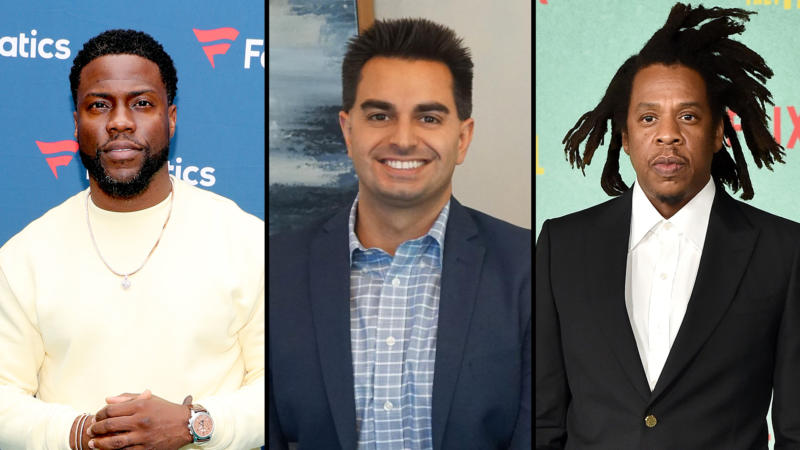HUNGRY first got a taste of the spotlight back in March 2020, at the start of what was supposed to be just a few weeks of a lockdown. At that time, the app got celebrity investors in the form of Jay-Z, several NFL players and comedian Kevin Hart in their Series B funding, which ultimately raised $20 million. But the looming threat of the pandemic weighed heavily on the founders’ minds.
“Starting a business, in and of itself, is a daunting prospect,” co-CEO Shy Pahlevani told AfroTech. “But now, imagine starting a business — in the food service industry — at the start of the pandemic. We knew we were taking a gamble. But it’s a gamble we were willing to take, and it was one that paid off in the end.”
The HUNGRY app works sort of the way Tinder does, in that it matches professional chefs with catering jobs. And the Series B funding wasn’t the first time that Hova’s Marcy Ventures Fund invested in the business — as AfroTech previously reported, the venture fund participated in the app’s first round of investing, too. Other celebrity investors into the app include Usher, restaurateur, Tom Colicchio; former Whole Foods co-CEO, Walter Robb; and more.
The Series C funding saw a similar who’s who list of celebrity investors, including Sands Capital Global Venture Fund, Motley Fool Ventures, Evolution VC Partners, Marcy Venture Partners, Stonewall Robb Investments, Studio Management, Bread and Butter Ventures, The Syndicate Fund, James Madison Innovations, GP Ventures, the Center for Innovative Technology, Private Access Network, The Torch Fund, The Heritage Fund, Flight VC and Robert G. Hisaoka.
Hart, himself, said that HUNGRY’s mission spoke closely to his value system.
“Hungry is leveling the playing field for chefs and giving them economic opportunities that they never had before. I’m a big supporter of what this business stands for,” he said.
And that, said Pahlevani, is the secret to the app’s success.
“We’re very real,” he said. “The companies and celebrities that have invested in us see us for what we are: a minority-owned app looking to make a positive difference in the world while disrupting the playing field at the same time. And I think that’s really what our users resonate with, as well.”
With the pandemic being what it is, HUNGRY, too, had to adapt and change its business model slightly. Over the past 18 months, HUNGRY has thrived under the pressure of a global pandemic, broadening its offerings to include Virtual Xperiences and last-mile food delivery and logistics services, both of which already have a national footprint. These new offerings helped enable HUNGRY to double its year-ending annualized revenue run rate in 2020.
Since its inception, HUNGRY has donated one meal for every two meals sold to help end hunger in the U.S. To date, the company has donated more than half a million meals through its own efforts and in partnership with Feeding America’s nationwide network of food banks.
The startup’s food solutions business currently operates in Boston, New York City, Philadelphia, Washington, D.C., Atlanta, Austin and Dallas. The company also plans to expand its onsite services to Los Angeles and the San Francisco Bay Area. And if you don’t reside in any of those areas, HUNGRY’s Virtual Xperiences is available nationwide.
“What started as a mission to disrupt the $60 billion office catering industry has become an adaptable and multi-pronged business—revolutionizing the way chefs work,” said Pahlavani. “Our pandemic response demonstrated the power, agility, and flexibility of our tech platform, chef network, and incredible team.”

















